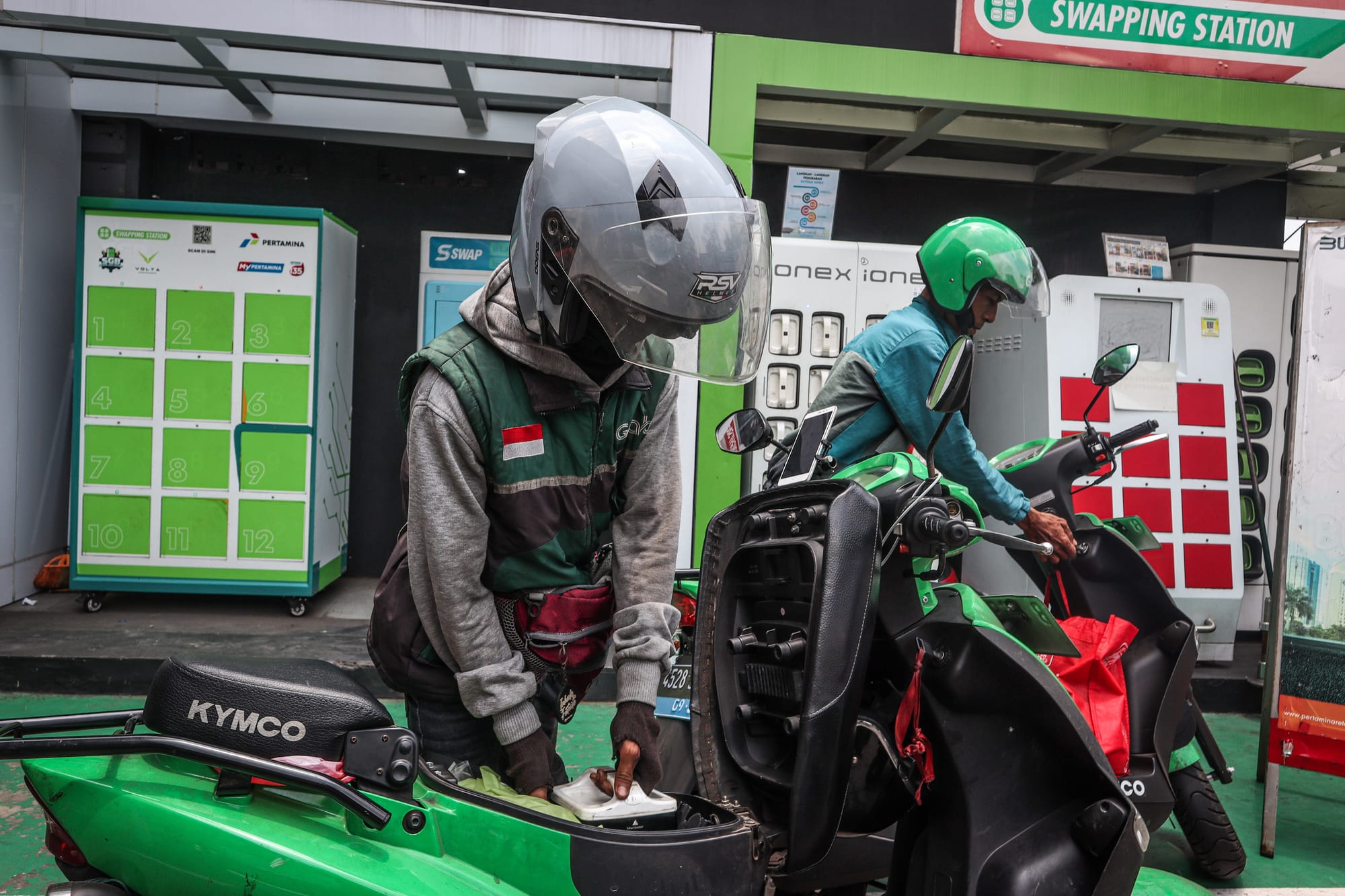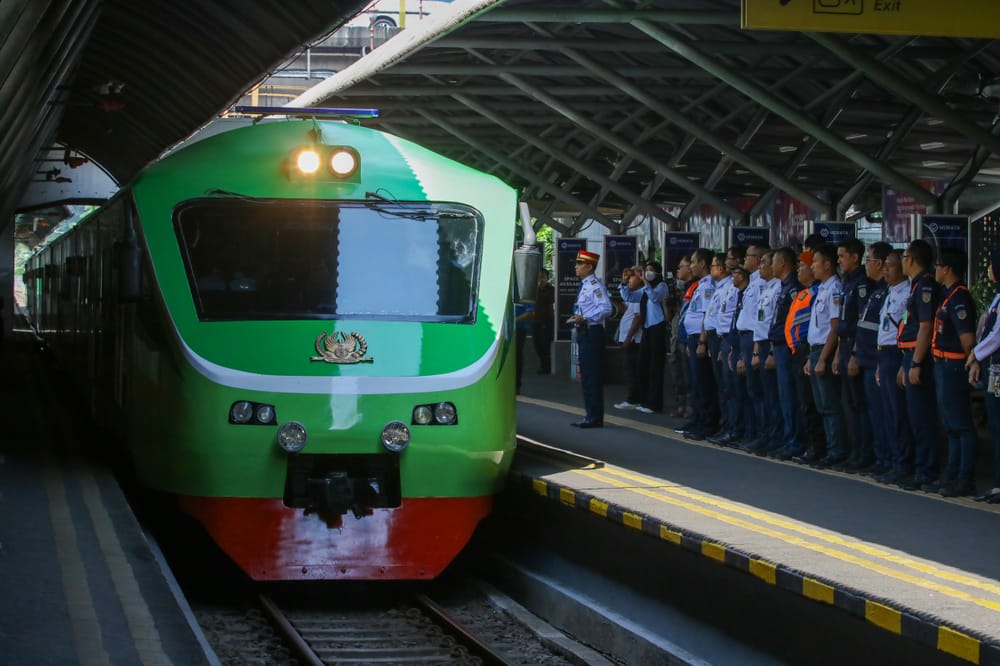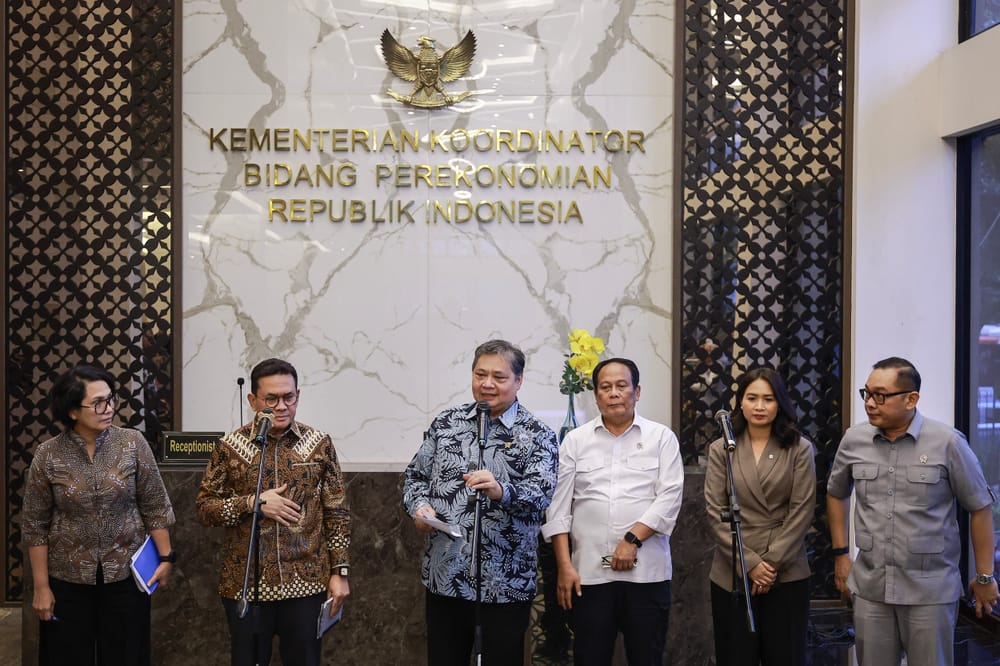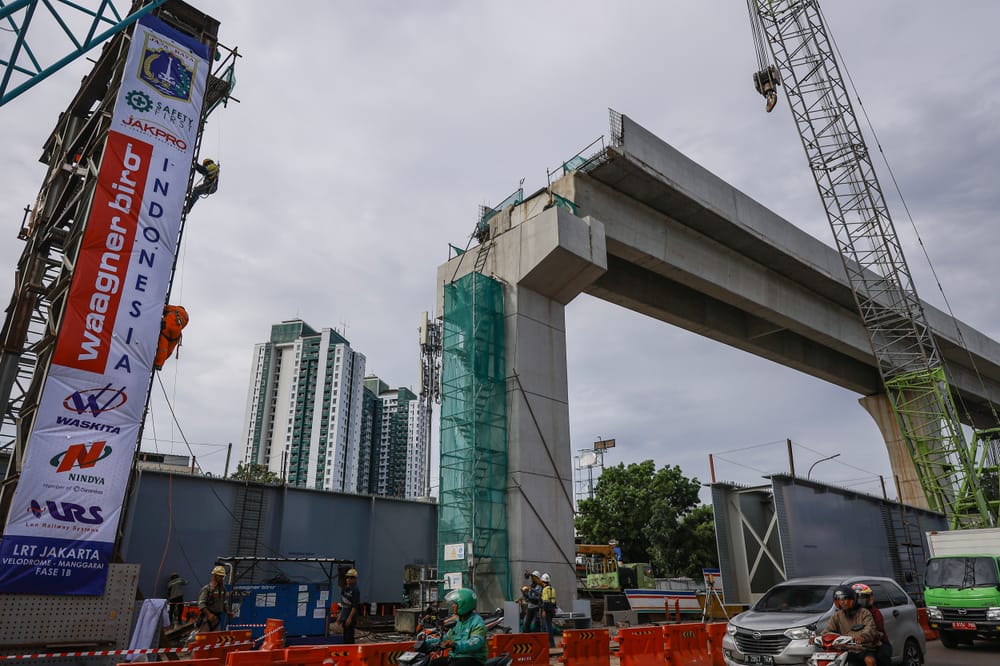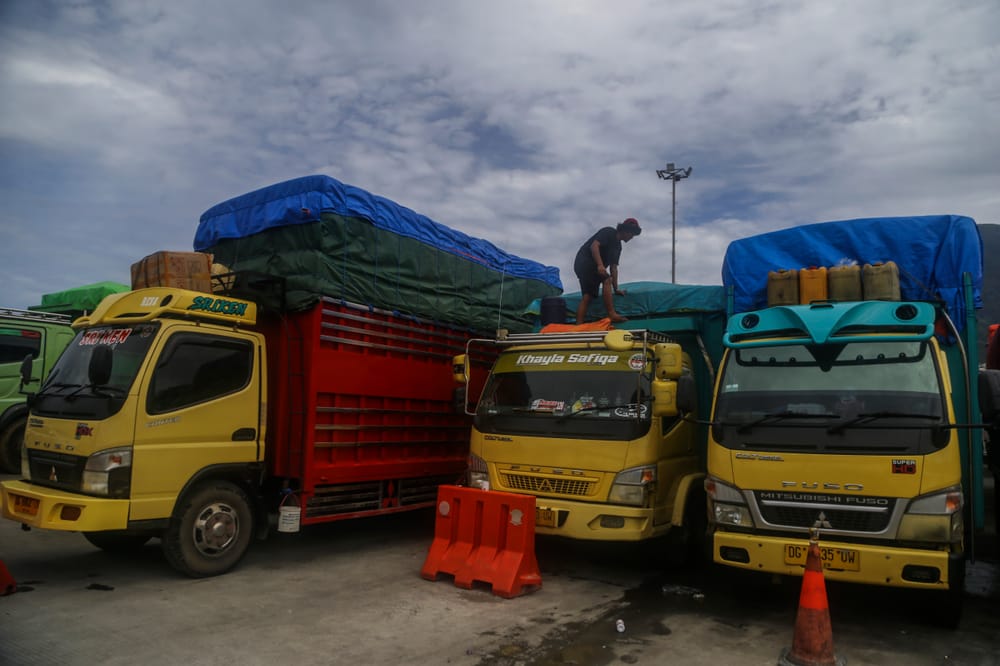Minister of Micro, Small, and Medium Enterprises (UMKM) Maman Abdurahman has proposed that online motorcycle taxi (ojol) drivers be included in the UMKM category. According to him, the drivers are part of a rapidly growing digital ecosystem along with online merchants and food ordering services. The government believes that there needs to be a legal basis that provides protection for business actors in the digital sector.
Maman proposed that the policy be stipulated in the form of a Presidential Regulation or Government Regulation. “We now see the need for rules that can protect business actors engaged in the digital market sector. And there are a tremendous number of them. One of them is from ojol. In the digital market ecosystem, there are transporters, applicators, and also UMKM or merchants,” he said, quoted by detikFinance, Monday (10/27/2025).
The Ministry of UMKM has been discussing this plan since June with several other ministries, including the Ministry of Manpower and the Ministry of Communication and Digital. The discussion was conducted to find a form of regulation that would allow ojol drivers to be recognized as independent business actors. The plan will reportedly be stipulated in a ministerial regulation as an initial step.
This proposal refers to Law Number 20 of 2008 concerning UMKM and Government Regulation Number 7 of 2021 concerning Facilitation, Protection, and Empowerment of Cooperatives and UMKM. The government considers that the legal basis is sufficient to expand the scope of business actors to the digital sector. This recognition is expected to open access to protection and financing for ojol drivers.
If the policy is implemented, ojol drivers will have the opportunity to obtain a number of facilities such as fuel subsidies, three-kilogram LPG, and access to People's Business Loans with low interest rates. The government is also preparing human resource training programs and tax incentives for micro-enterprises with a turnover of under Rp4.8 billion per year.
Warm welcome from ojol drivers
The Chairman of the Garda Indonesia Ojol Driver Association, Igun Wicaksono, welcomed the government's plan to include ojol drivers in the micro-business actor category. According to him, the planned policy can provide a clearer legal basis for drivers who have not had protection in their partnership with application companies.
According to Igun, this recognition can be an initial step for the state to provide protection that has not been explicitly regulated. Igun hopes that the government will not only establish a new status, but also ensure that there is a strong legal umbrella in the revision of the law on UMKM so that the position of ojol drivers is officially recognized.
Igun believes that this policy also opens up opportunities for drivers to gain access to various welfare improvement programs. Igun emphasized the need for better social security, including health protection and work insurance, which has not been fully available to ojol drivers.
In addition, Igun believes that the regulation drafting process needs to involve drivers so that the policies produced are in accordance with the real conditions on the ground. “We hope that the government and the DPR will involve us in the discussion of the revision of the law so that the decisions that are born are in favor of the drivers,” said Igun. With such involvement, Igun said, protection for online transportation workers can run more fairly and comprehensively.
Director of the Digital Economy Center of Economic and Law Studies (CELIOS), Nailul Huda, believes that the main problem in the online transportation sector is the absence of regulations that fully regulate the relationship between drivers and platforms.
According to him, the existing rules are still scattered across several ministries with an unbalanced portion. “Regulations on tariffs are at the Ministry of Transportation, the form of partnership is at the Ministry of UMKM, while the Ministry of Manpower has not regulated it because it is considered a partnership,” he said.
According to Huda, in the current conditions, the Ministry of UMKM is the most appropriate institution to oversee the regulation of the online transportation sector. The regulations made, according to him, must emphasize that a partnership is different from a formal employment relationship that sets certain working hours.
Huda also emphasized the importance of the involvement of driver associations so that the rules compiled are balanced and in favor of both parties, including in terms of tariffs and health insurance.
He added that recognizing drivers as micro-business actors will have dual consequences. On the one hand, drivers cannot demand holiday allowances or minimum wages like formal workers because income depends on performance.
“But this, in my opinion, is quite fair considering that the agreement is in the form of a partnership, not a direct employment relationship,” he said.
Flexibility is indeed the main characteristic of work in the gig economy sector. In this system, drivers can work for more than one employer, both in the same and different industries.
“When work is flexible, drivers can take sources of income from more than one place and get greater benefits,” said Huda.
Huda believes that every status choice carries its own advantages and risks. If the driver has employee status, there will be an obligation to work fixed hours and the potential for termination of employment like workers in general. On the other hand, with partnership status under the UMKM umbrella, drivers do not have full protection like employees, but get the freedom to manage their time and determine their employers.
SUAR has contacted GoTo and Grab to request their response as application providers to this policy plan. However, until this news is published, no official statement has been given.
Legal status, fair rates, and algorithm transparency
On the other hand, the Chairman of the Online Driver Association (ADO), Taha Syafariel, considers the government's plan to categorize online transportation drivers as UMKM actors to be legitimate and not against the law.
The policy can help drivers if implemented correctly. However, Taha emphasized that before discussing UMKM, the government needs to ensure the clarity of the legal status of drivers as application-based transportation workers.
Read also:

According to Taha, the drivers have been in a dual position. "They are called partners by the application, but in practice, we are service providers of transportation," he said.
This situation creates legal uncertainty because there are no regulations that explicitly define the position of drivers in the national labor system. So, for Taha, if they are directly classified as UMKM actors without clarity on their worker status, the government is actually expanding the gray area that has been avoided so far.
Taha also questioned the extent to which the Ministry of UMKM has the capacity to guarantee job protection for drivers. "Can UMKM guarantee accidents, permanent disability insurance, or termination of employment? That is not their authority," he said.
Without such guarantees, Taha believes that recognition as a UMKM will only add to the administrative burden without improving the legal position of ojol drivers.
Therefore, for Taha, the discussion of online transportation policies should not stop at determining business status alone. Taha mentioned that there are three main things that need to be guaranteed by the state, namely certainty of the driver's legal status, determination of fair rates, and transparency of algorithms in the application work system.
These three aspects must be regulated across ministries so that protection for ojol drivers is truly effective and touches the root of the problem in the field.


